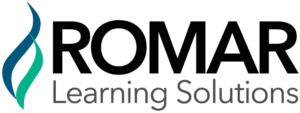
There are 5 theories that shape instructional delivery in adult learning: transformational, experiential, self-directed, project-based, and action-based. Romar Learning Solutions breaks down each of these theories:
Transformational Learning
A person’s beliefs and experiences shape the way they view the world around them. Therefore, it is important that trainers consider each learner’s unique experiences as they shape their instructional delivery.
Transformational learning requires learners to analyze their life experiences and beliefs, listen to new perspectives, and consciously change old belief systems to adopt new ones.
Experiential Learning
Many learners absorb new information by utilizing their mechanical skills through hands-on experiences. When introducing new concepts, trainers should incorporate learner-centric activities.
With experiential learning, learners are presented opportunities to put their new skills to the test, work through unfamiliar processes with systematic thinking, self-reflect, and identify ways to improve these new processes.
Self-Directed Learning
Adult learners must possess some level of self-responsibility as it relates to their own education. Therefore, trainers should encourage learners to take initiative and optimize their learning with self-directed approaches.
Self-directed learning supports learners in identifying their unique needs and resources that will aid their learning, implementing new skills in hands-on experiences, and assessing their results and making necessary changes for improved processes.
Project-Based Learning
For optimal learning, learners must know how to apply their new skills and knowledge. Trainers should incorporate engaging hypotheticals and role-play activities so learners can practice addressing real-world problems.
Project-based learning encourages learners to ask questions, use critical thinking and problem-solving skills to improve processes, collaborate with their colleagues, and communicate effectively.
Action-Based Learning
Adult learning requires critical thinking and problem-solving skills. However, learners will not achieve their desired results by simply brainstorming and offering suggestions. Trainers should encourage learners to take action as new ideas arise and reflect on their results so they can make necessary improvements.
Action-based learning is collaborative, allowing learners to bounce ideas off their colleagues, optimize each individual’s strengths to fill in knowledge gaps, and identify areas of learning need.
Interested in learning more about staff and leadership development? Romar Learning Solutions specializes in adult learning for leaders, sales representatives, medical professionals, matrix teams, trainers, customer service representatives, and more. Contact us today!
Don’t forget to follow us on Facebook, Instagram, Twitter, and LinkedIn.




